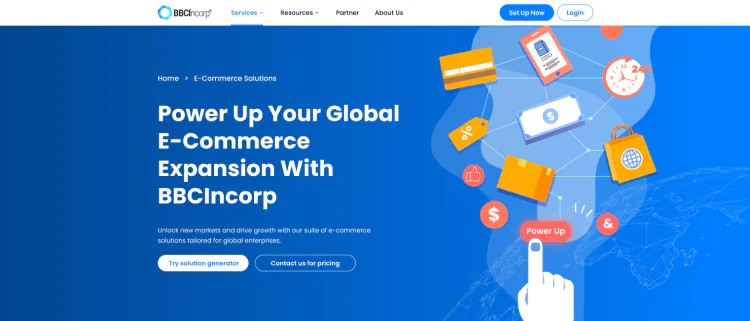
Think small to grow big. That’s the essence of what makes niche markets so powerful. A niche market represents a focused, unique segment within a broader industry, allowing businesses to target customers with precision and build stronger connections. For companies looking to expand beyond local borders, these markets can serve as the launching pad to global success.
Whether you’re a small business owner or an entrepreneur, understanding and leveraging niche markets can unlock opportunities that broader, more saturated markets often overlook. Did you know that 64% of shoppers prefer brands tailored to their specific needs? This is just one indication of how niches are poised for growth. If you’re ready to scale your business strategically, starting small could help you go global.
What are niche markets?
A niche market is a specialized subset of a larger market designed to meet the specific needs, preferences, or identities of a particular group. Unlike mass markets that aim to cater to everyone, niche markets focus on a small but dedicated audience.
For example:
- Eco-conscious consumers prioritizing sustainable goods.
- Gamers seeking ergonomic, high-performance gear.
- Pet owners looking for organic, specialty pet food.
By concentrating on a niche, businesses can create products and services that offer tailored solutions to customers’ unique challenges. The result? Higher engagement, stronger brand loyalty, and a clearer path to standing out in competitive industries.
Benefits of niche markets for global success
Higher profit margin
When starting an ecommerce business, focusing on niche products or services can lead to higher profit margins. Niche markets cater to specific, underserved audiences with unique needs, allowing you to command premium pricing. Customers in these markets are often willing to pay more for exclusivity, quality, and specialized attention.
For instance, a handcrafted luxury watchmaker that caters to collectors can charge significantly more than mass-produced alternatives due to its artisanal craftsmanship and rarity. This exclusivity not only justifies the premium pricing but also reinforces the perceived value of the brand, creating a loyal customer base that appreciates the distinctiveness of the offering.
Stronger customer loyalty
When customers feel understood, they stay loyal. Businesses that cater to niche markets often prioritize personalized service and products, creating a close-knit bond with their audience. If your brand specializes in dog-friendly travel gear, dog owners who value adventure will keep coming back because you cater to their exact needs.
Less competition, greater authority
Niche markets tend to have fewer competitors, making it easier for smaller brands to stand out. This reduced competition allows businesses to establish themselves as specialized experts. A bakery that exclusively creates gluten-free desserts for a health-conscious crowd will likely face far less competition than a general bakery.
Sustainable growth opportunities
When done right, niche markets are scalable. Businesses can start within one specialized community and expand into adjacent niches as they grow. A company offering organic baby food locally might later expand to serve global markets by addressing the similar needs of parents worldwide.
Finding the right niche market for your business
Step 1: Identifying passion and expertise
The foundation of a successful business often starts with understanding your passions and expertise. Take some time to reflect on your interests, hobbies, and unique skills. Building a business around something you genuinely care about not only keeps you motivated but also helps you stay authentic, which can resonate deeply with your audience. Think about what excites you and how it aligns with what you’re good at.
Ask yourself:
- What do you enjoy doing or learning about, even in your free time?
- What unique skills or knowledge can you bring to the table that others might find valuable?
- What specific communities or demographics align with your personal experiences, values, or life journey?
Step 2: Conducting market research
Market research is a critical first step in identifying and validating business opportunities. Start by using tools like Google Trends or keyword research platforms to explore potential markets.
Make sure you observe online community discussions, forums, and social media platforms to gain insights into what people are talking about and what problems they need solved. Look for patterns that suggest long-term profitability rather than fleeting fads.
A sustained increase in searches for “vegan pet food” could signal a growing niche in the pet industry, driven by rising consumer interest in sustainable and ethical products. By combining data and qualitative insights, you can better understand where the best opportunities lie.
Step 3: Analyzing the competition
While fewer competitors often exist in niche markets, it’s crucial to thoroughly assess their offerings to understand the landscape. Take a close look at what products or services they provide, their pricing, and how they position themselves in the market. Identify gaps in their services or unmet customer needs that you could address.
If a popular brand focuses on premium options but lacks affordable alternatives, offering a cost-effective solution could be your entry into the market. Similarly, consider targeting underserved customer segments or improving upon existing products to differentiate yourself from the competition. Comprehensive research will give you the insights needed to carve out your place in the niche.
Step 4: Testing and validation
Before going all-in on your business idea, it’s crucial to test it thoroughly. Start with a small-scale campaign to see how your target audience responds. You could offer free samples, set up a pop-up shop, or even create a landing page to measure interest and collect feedback.
These early experiments not only help you gauge demand but also provide valuable insights into customer preferences and pain points. By gathering this feedback early, you can refine your product, adjust your strategy, and reduce potential risks before committing significant time and resources. Testing is the foundation of a strong launch.
Strategies to succeed in niche markets
Tailor your product and pricing strategy
Success in niche markets depends on offering products and services that are closely aligned with the unique needs of your target audience. It’s also essential to consider a product and pricing strategy that reflects the value of your offering.
- Product customization: Spend time understanding pain points, preferences, and aspirations of your niche customers to create tailored solutions. For example, a fitness brand targeting seniors should consider adjustable resistance bands or instructional videos for lower-impact exercises.
- Pricing considerations: Don’t assume that lower pricing will attract niche customers. These markets often value exclusivity or superior quality over cost savings. Highlight premium features to justify your pricing, such as handcrafted products, ethical sourcing, or expert curation.
Tailor your brand message to local audience
When targeting a niche audience, your brand message should reflect their beliefs and priorities. To connect with these audiences, it’s essential to understand consumer behavior and create a unique selling point (USP) that aligns with their values.
- Language and tone: Use the right language and tone to appeal to your target market. Let’s say you’re targeting elderly consumers in Japan, avoid using slang or informal language in your marketing materials. Instead, opt for a respectful and formal tone.
- Visuals and imagery: Choose visuals that reflect local culture and preferences. This could include using models from the same ethnic background as your target audience or showcasing popular landmarks or traditions in your advertising campaigns.
Build an online presence
Niche markets thrive on targeted online strategies that align with their audience’s preferences. Whether your customers are active TikTok users or avid blog readers, meeting them where they are is essential to build a strong brand presence.
- Use SEO and localization: Utilize search engine optimization to improve your website’s visibility, and pay attention to location-specific searches. If you’re targeting a local audience, optimize for keywords like “vegan pet food in Singapore.
- Leverage social media: Social media allows businesses to reach their target market through targeted advertising and organic content sharing. Engage with your audience by responding to comments and messages, hosting Q&A sessions, and sharing relevant content.
- Collaborate with influencers: Influencers are individuals who have significant influence over a specific niche community. Partnering with influencers can help increase brand awareness and credibility within the niche market.
Establish a subsidiary to test the market
If you’re entering a new market, consider setting up a subsidiary to evaluate its potential before making substantial investments. A subsidiary allows you to test products or services, gain insights into customer behavior, and adapt to local preferences without overcommitting resources.
This approach minimizes risks while offering a controlled environment to refine strategies. By starting small and leveraging the subsidiary for on-the-ground research, you can evaluate the market viability and gradually scale based on the results and insights gathered.
Common challenges in niche markets and how to overcome them
Limited audience size
One of the biggest challenges in niche markets is the limited audience size. To overcome this, businesses can focus on building brand loyalty and developing strong relationships with their customers. This can be achieved by creating personalized experiences, offering excellent customer service, and continuously engaging with your audience through various channels.
Competition from established brands
Niche markets often have established players who have a significant market share. To compete with these brands, it’s essential to differentiate yourself by highlighting your unique selling points and showcasing how your products or services cater specifically to the needs of the niche market.
Staying relevant
In niche markets, trends and customer preferences can change quickly. To stay relevant, businesses must continuously monitor the market and adapt their strategies accordingly. This could mean developing new products or services, improving existing offerings, or finding innovative ways to reach and engage with the target audience.
Limited resources
Smaller markets also mean limited resources for businesses operating within them. To overcome this challenge, it’s crucial to prioritize investments and focus on areas that will have the most significant impact on your business. This could include investing in marketing efforts that resonate with your target audience or leveraging technology to streamline processes and increase efficiency.
Establish a competitive niche business with BBCIncorp
At BBCIncorp, we understand the unique challenges faced by niche businesses. That’s why BBCIncorp Ecommerce Solutions are designed to cater specifically to the needs of these markets. We offer customized solutions that can help your business stand out.

Seamless market entry: Incorporate your business in Singapore or Hong Kong to enhance credibility and strengthen recognition for niche businesses. Plus, enjoy streamlined cross-border transactions with an Airwallex corporate account for smooth, international payments.
Payment gateway setup and integration: Accept payments from 130+ countries with ease. Our Airwallex payment gateway registration and integration services optimize your checkout process, build customer trust, and drive more sales. Get exclusive discounts when you register through us!
Custom website design that converts: We craft stunning, user-friendly websites tailored to your brand and ecommerce goals. Fully functional and designed to engage your customers.
Boost traffic with digital marketing: Dominate search results and reach your ideal audience with customized SEO and digital marketing strategies.
Don’t wait to grow your business. Reach out to us today and discover how we can transform your ecommerce vision into reality. Contact us now via service@bbcincorp.com to get started!
Disclaimer: While BBCIncorp strives to make the information on this website as timely and accurate as possible, the information itself is for reference purposes only. You should not substitute the information provided in this article for competent legal advice. Feel free to contact BBCIncorp’s customer services for advice on your specific cases.
Industry News & Insights
Get helpful tips and info from our newsletter!
Stay in the know and be empowered with our strategic how-tos, resources, and guidelines.


